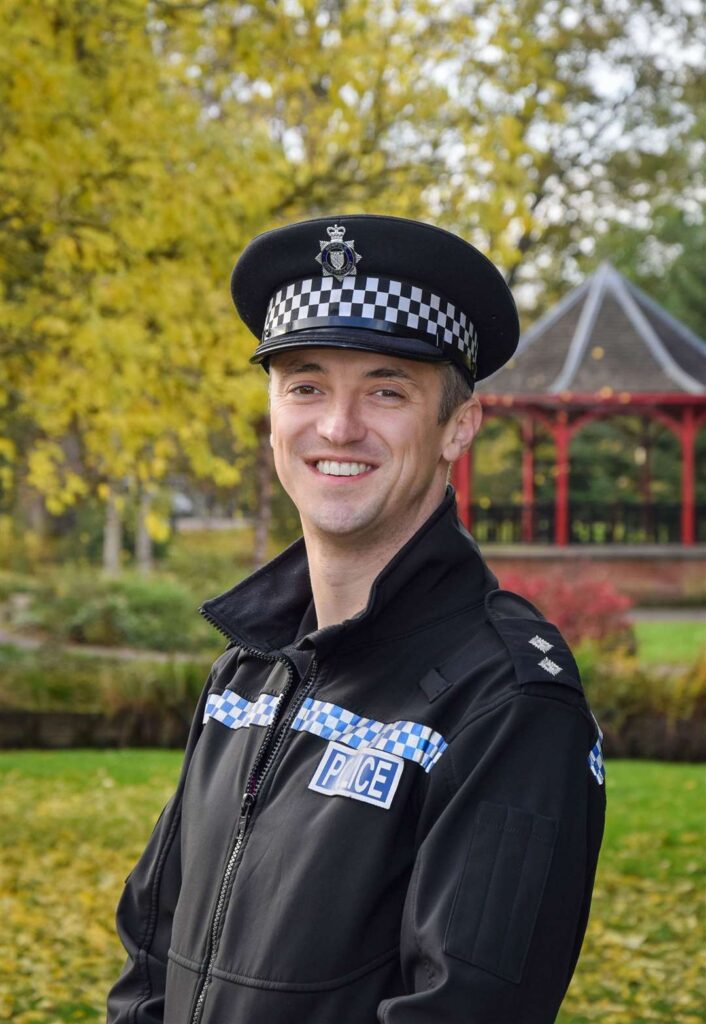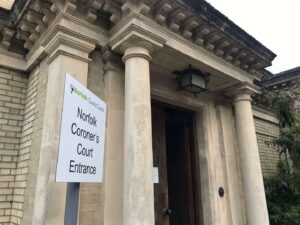Police have insisted they are “not hesitant to act” on traveller camps following claims officers have taken a “soft” approach.
There have been multiple illegal encampments set up around West Norfolk in the last month, including at West Norfolk Rugby Club, Gaywood Park and Clenchwarton’s recreational ground.
One Gaywood man, who has asked not to be named, has put this down to officers not wanting to “battle with that particular group of people”, which he says has led to the county’s force being seen as a “soft touch”.
The man claims he raised concerns with the force numerous times, but on each occasion, they told him they had no power to do anything, as it was not a crime.
He then received an apology from Inspector Ben Jarvis, who told him a staff-wide email was issued to clarify that under the Police, Crime, Sentencing and Courts Act 2022, officers do actually have the power to address unauthorised encampments when needed.
“While these powers exist, their use must be proportionate and justified,” Insp Jarvis said.
“Guidance from the National Police Chiefs’ Council (NPCC) outlines specific triggers for invoking these powers, and we are committed to adhering to that framework to ensure our actions are lawful, fair, and consistent.”
However, the Gaywood resident is not so convinced, as one of the triggers named by the NPCC to allow for the prompt and lawful removal of travellers from areas is communities being deprived of their amenities.
This means that as long as there is evidence of disruption, police enforcement can be used when a recreation ground, public park, school field, village green, or car park is occupied.
The resident said: “If 14-plus caravans, and 30 to 40 people, suddenly rock up on a public park and put people off using it as they feel intimidated, that is a significant disruption.”
He also claimed that the police are not effective at deterring travellers from returning, as they simply hand the groups a five-day eviction notice.
“The police come along, the travellers get a knock on their caravan door, they wait for five days, which is what they want to do anyway, move to a patch down the road, and the whole saga repeats,” he said.
But Insp Jarvis told the Lynn News that the force’s goal is to always resolve the issues while respecting the rights of everyone involved.
“We understand that this is a sensitive issue for many residents,” he said.
“I want to reassure them that our officers are not hesitant to act, we take our responsibilities seriously and always aim to act in the best interests of the public, but we have to ensure we follow the rule of law.”
West Norfolk Council has also come under scrutiny for being “useless” in its handling of travellers.
The Gaywood resident said: “For some reason, the borough council ignores the latest guidance issued in 2015, which explicitly says that local authorities have the powers to deal with these issues robustly and swiftly.
“It says, almost verbatim, that local authorities should not gold plate their policies based on human rights and equality legislation, which is what they’re doing at the moment.
“They’re saying they have regard for the human rights of these groups of people, but what about the human rights of the thousands in the immediate vicinity?”
However, the authority says that cracking down on encampments is a more complicated issue than it seems, as the law and cost of removal must be taken into account.
“We have an additional duty to foster good community cohesion and relations, and we must act fairly, proportionately and responsibly,” a spokesperson said.
“We must therefore balance treating encampments fairly and reasonably with the impact of any encampment on the settled community in which it is located.”
The spokesperson added that when they are informed of an encampment, council officers gather the facts and then decide whether or not it can remain for a few days.
After this, travellers are either issued with a set of rules that they must adhere to during their stay, or the council enlists the help of the police to remove them.
“Removal of encampments can be extremely costly and, without proper justification, it can also be unlawful,” the spokesperson added.
“The council, therefore, also needs to consider if removal is a responsible use of public resources.
“While accepting that most settled communities do not welcome the arrival of encampments, the majority of them do not present a significant risk to those communities, so they will generally be allowed to remain on borough council land for a few days as they pass through.
“Gypsy, Roma and traveller encampments are common in most local authority areas, and they will continue, as members of those communities, to seek to be true to their race and culture.
“They have protected rights in equality legislation, and it is right that we respect this in the same way that we would with any other marginalised group.”
Despite this, the resident is concerned that both the council and the police are “giving in to bullies.”
“People feel intimidated right now, rightly or wrongly, but they do,” he said.
“Residents pay for that park through taxes. They pay for it to be maintained and pay for it to be cleaned.
“Those living directly around those parks should be able to use them, but when a group comes and takes it over, that is an unpleasant thing.
“With the police’s softly softly approach, I suspect there will be further such encampments that will happen over the course of the summer.”






